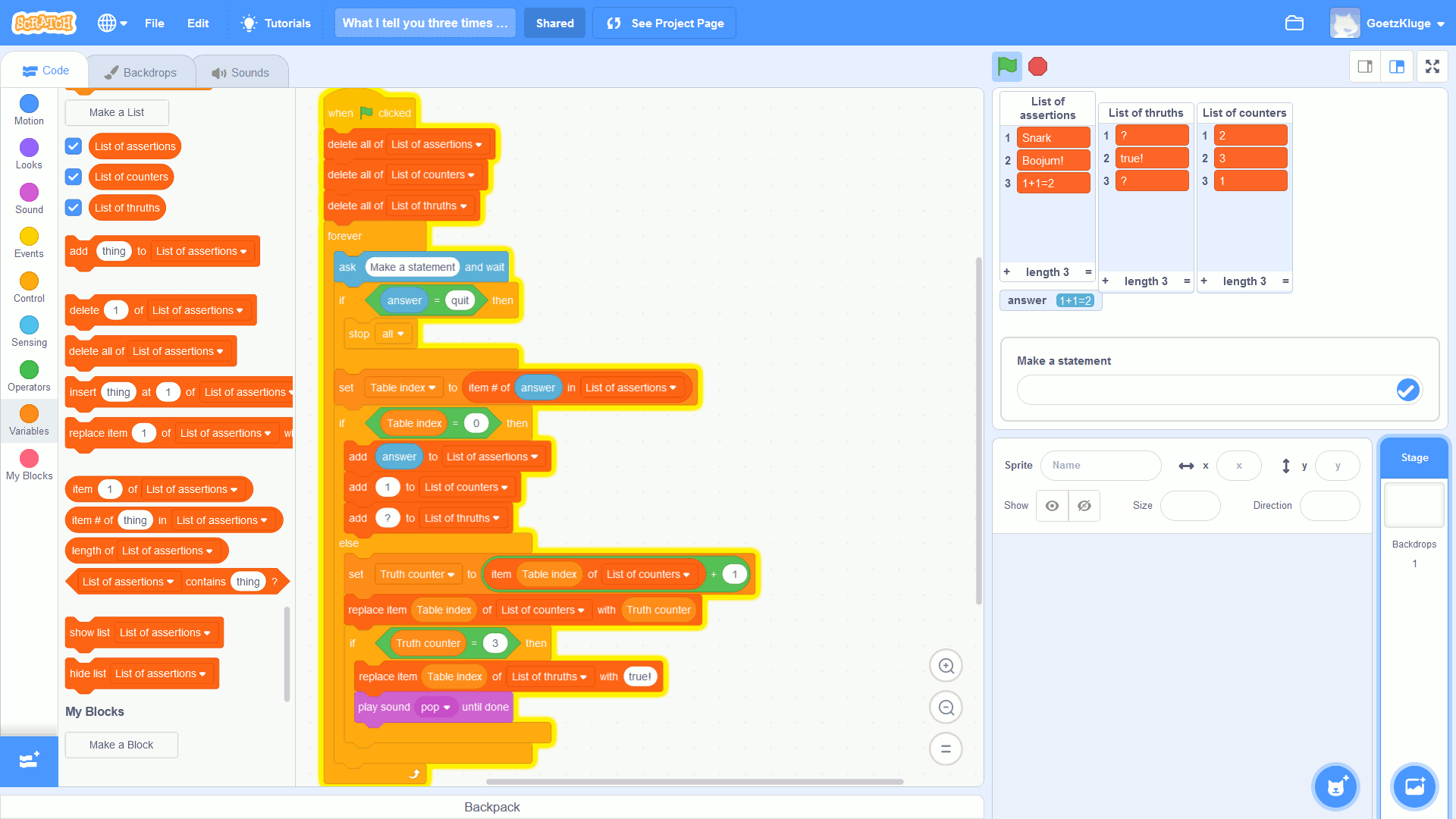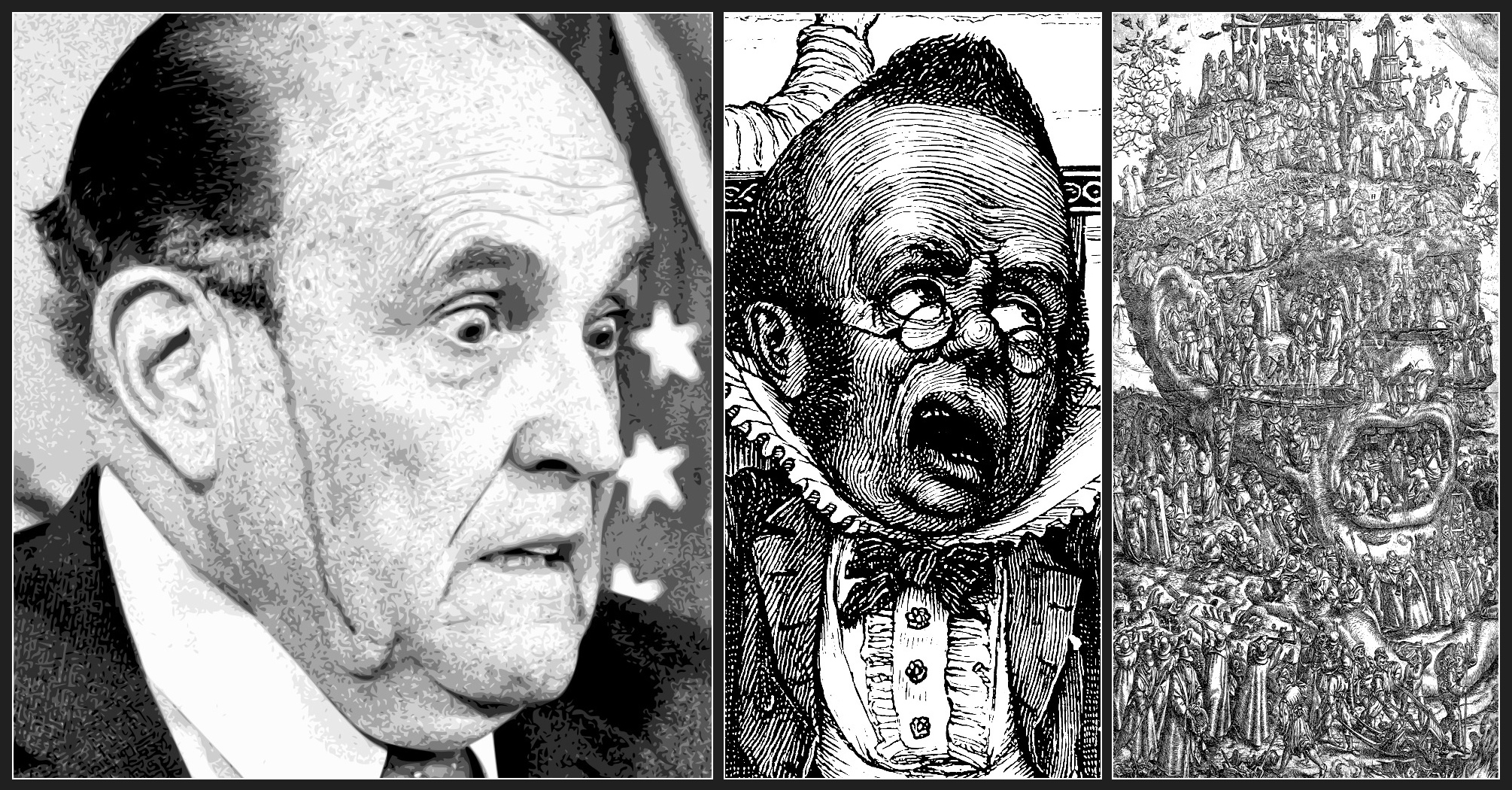I can prove that Joe Biden stole the election. What I tell you three times is true! (MG007)
Let’s check the rumors. The following program counts assertions in order to check whether they are true. As everybody knows, assertions become facts if they have been told three times. The input to the function “atLeastThrice” is the list “assertions”. The output of the function is a list of those statements which are found at least thrice. (The program is written in Haskell. Therefore it must be true.)
#! /usr/bin/haskell
import Data.List
someAssertions :: [String]
someAssertions =
["Biden stole the election!"
,"Truth isn’t truth."
,"Truth isn’t truth."
,"1+1=2."
,"Truth isn’t truth."
,"Biden stole the election!"
,"Biden stole the election!"
,"1+1=2."
]
atLeastThrice :: [String] -> [String]
atLeastThrice assertions =
[head grp | grp <-
group $ sort assertions, length grp >= 3]
Output (if loaded and executed in GHCi):
*Main> atLeastThrice someAssertions
["Biden stole the election!","Truth isn’t truth."]
You see, “1+1=2.” is not sufficiently true because it appears less than three times in the list or assertions. The other two assertions are true, because they have been stated thrice. Two times is not enough. Everybody knows that.
For increased assertiveness, you might need to apply the Bellman’s rule even more often.
If Haskell is too much, try Scratch:

Snark is served | Taste of the Snark
2018-08-24, update: 2023-08-24 (MG007)

